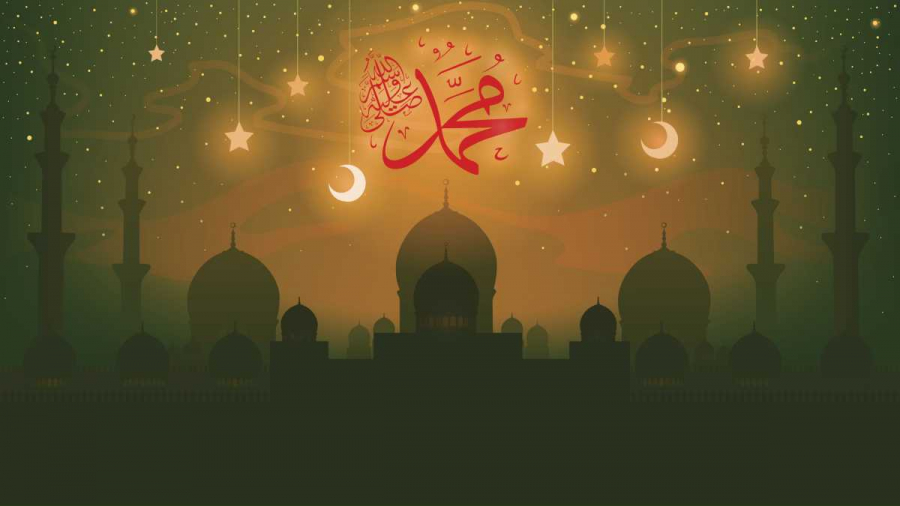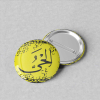Who am I? I may be a Christian, a Jew, a Muslim, a Hindu, an atheist, a Communist, a capitalist, an intellectual, a layperson, an easterner, or a westerner. Whatever my position is: Do I need to know what is my relationship with Prophet Muhammad [pbuh]? Why do I need to know my relationship with him? After all I am not a Muslim. Then why should I bother to know my relationship with Prophet Muhammad [pbuh]? If I do not know exactly what is my relationship with Prophet Muhammad [pbuh] do I lose anything? I can think in different ways and decide not to bother myself about this question as I do not accept him as the Prophet, rather I consider him as an image for caricatures.
Why do I want to make fun of him? If I make a cartoon of him then I need to think: Am I able to affect him, his personality or reduce his image in the eyes of some people?
During this period of Covid-19, I do realize that I need to care for myself, my interaction with other people. I need to protect myself from others. So, I was advised that I must maintain physical distance from others, otherwise I may be affected by Covid-19. So, whether I like it or not, I need to protect myself, it is my responsibility. What I learn from Covid-19 is that it is me who needs to be safe. Therefore, I need to protect myself from the pandemic and negative influences of it and potential harm caused to me and others.
My protection, my safety, my well being is my own concern. Why should I protect myself from others especially during this period of Covid-19? If I do not protect, I may become positive with Covid-19, then I may lose my good health and even my life. To protect and save my life, I need to protect myself from others and negative influences.
As a man of curiosity, I need to know do I need to protect myself only during the period of Covid-19 or always? If I need to protect myself always from the negative influence of others, I need to be always vigilant. Here, at this stage I feel I need to think what is the significance and place of the Prophet Muhammad [pbuh] in my life? Is it true that Prophet Muhammad [pbuh] is the Prophet of Muslims and, therefore, I do not have any relation with him? The Quran declared him as the Prophet, so we need to refer to the Quran. The Quran speaks repeatedly about him. Let us see what the Quran says about him. I will refer here only to two statements of the Quran. There are numerous references to him in the Quran. Let us investigate the following:
We have not sent you, [O Muhammad], but as a bearer of good tidings and a warner. [25:56]; Most blessed is He Who sent down this Criterion on His Prophet, to be a warner to all mankind [25:1].
Say to them: “I ask of you no reward for my work...” [25:57]
One can find two important points in the above statements of the Quran which deserve our attention:
First, as a warner, the Quran says, Prophet Muhammad [pbuh] alerted people around him and drew their attention to the dire consequences of the negligence of the Truth of this world. His mission was to disseminate the message of the Truth of life and the world. He presented the Qur'an revealed by God to him as an admonition and a reminder to help people understand the Truth of life and the world. This theme is repeated in the Qur'an to make people understand the Truth. It was said: “...it is only a reminder for him who fears God; a revelation from Him Who created the earth and the high heavens. The most Compassionate Lord is settled on the Throne. To him belongs all that is in the heavens and all that is in the earth, and all that is in between, and all that is beneath the soil” [20:3-6]. The Qur'an claims that the Prophet’s mission and teachings are not meant for any particular country or any specific people or period of time. According to the Qur'an, his mission and teachings are relevant for the whole world, people of all races and for all times. Hence, we are no exception. The people of modern world are bound to seek guidance from him if we wish to live in peace and harmony. The Qur'an contends that we all are bound to look into his message if we want to protect ourselves from harmful consequences of our thoughts and actions. The Qur'an repeatedly reminded us that Prophet Muhammad [pbuh] is the Prophet for all of us. He is not the Prophet of Muslims alone. The Qur'an made it clear to the Prophet Muhammad [pbuh] and asked him to make it clear to people. So he said: “O People, I am God’s Prophet to you all” [7:158]. God said to him: “We have sent you – O Prophet Muhammad – only as a bearer of good tidings and as a warner to all mankind” [34:28] and “We have sent you forth as a mercy to all people of the world” [21: 107]. He himself said: “I have been sent to all people, the white and the black [Sahi Muslim]; "Before me a Prophet would be sent only to his own people but I have been sent to all mankind [Sahi Bukhari]." Based on above statement, one can understand that we all have some direct relation with him whether we accept him as our Prophet or not, but surely he was sent towards us as the Prophet [pbuh]. We cannot be unconcerned about him.
The Qur'an made it explicit for our clear understanding that as the Prophet he enjoined upon people what was good and forbade them what was evil. He made by the Will of God the clean things lawful to people and prohibited by the Will of God all harmful things. He released them from their burdens and the shackles that were upon them. God asserted beyond any doubt that those who accepted and followed him would enjoy the prosperity and success. “...So those who accepts him assist him, and succour him and follow the Light which has been sent down with him, it is they who shall prosper” [7:157]
Second, what was the mission and teachings of the Prophet Muhammad [pbuh]? The Qur'an makes it clear. It says his mission was to make people to understand the Truth of themselves and the world. Therefore, his concern was to guide people to their well-being. He was very much concerned for the well-being of people that God Himself consoled him at many times in the Qur'an. God refers to his untiring and restless efforts and console him in the following words:
“[O Muhammad!] You will perhaps grieve yourself to death because people do not understand [26: 3]; “[O Muhammad!] if people do not understand this message, you will perhaps torment yourself to death with grief, sorrowing over them” [18: 6]; “So do not let your life be consumed by grief and regret over them” [35:8].
The above-mentioned statements of the Qur'an demonstrate that how the Prophet Muhammad [pbuh] was worried about us. He wanted to help us to realize the Truth of this world so that we can live in line with the Truth. We claim we are matured enough, we possess scientific knowledge and can solve our societal problems. Are we really sure that we know the Truth of ourselves and this world and hence we do not concern ourselves about him? Are not we steeped in error and misguidance, engulfed in many wrong doings? If not, then why 10 million people are living in refugee camps today and why millions of people are fearful of nuclear weapons? Aren't we stubborn in clinging to erroneous ways and intensely defiant in opposing all reform efforts and continue involving in corruption and crimes? We need to reflect in all these questions especially about the Question of our relationship with Prophet Muhammad [pbuh].
The Qur'an says repeatedly that every Prophet [pbut] was a selfless reformer whose only task was to convey the message of the Truth to people and to inform them of the good and bad consequences of their deeds. He was absolutely a selfless person who worked for the good of people. He did not gain anything for himself out of the mission for which he was striving. Hence, if one accepts his message, it would be to his own benefit. If we do not accept and do not follow his message of Truth, then we would be subject to harming ourselves but not him. By depicting him in cartoons and caricatures we will definitely harm ourselves, but not him. He had done his duty and now the matter rests with us. He has shown the right path and conveyed good tidings to us. He was and is a Perfect Role Model for us. He guided people, taught them, and purified the lives of people during his lifetime and even after his life till this day. Hence, anyone who defines the relationship between him and us needs to define in this context as he invited all of us to the right path of living:
[O Muhammad] You are calling them to a Straight Way [23:73]
The argument here is that the Prophet Muhammad [pbuh] was most selfless in his mission. He suffered numerous hardships but performed his duty selflessly. Before he was appointed as the Prophet [pbuh], he was a fairly prosperous trader. Before he was assigned a new mission, he was held in high esteem in society. However, in response to his mission he suffered both verbal abuse and physical harm; and even his life was at risk. After his appointment as the Prophet [pbhu], he engaged himself in a struggle not for tribal or national chauvinism, but welfare of people.
Say [O Muhammad]: ‘O people! I have been sent to you only as a plain warner’. So those who understand - the Truth - and act righteously shall be granted forgiveness and an honorable sustenance, whereas those who strive against the Signs of Allah, they are the friends of the Fire! [22: 49-51]
There is no god but Allah. All will perish but Allah. To Allah belongs the command. And to Allah shall all of us return [28:88].
Prophet Muhammad [pbuh] has performed his job perfectly. He cautioned us to be vigilant for the consequences of our life after death in the Hereafter. He was quite confident about the next world and life in it. It is now our turn to turn towards him and understand the Truth of ourselves and this world in which we have been given life without our consent and one day it will be taken back again without our willingness. Hence, we need to know our relationship with Prophet Muhammad [pbuh] so that we can seek guidance from him for our practical life and protect ourselves from forthcoming losses and be successful ultimately in this world and also in the Next life.
By: Dr. Muhammad Mumtaz Ali


















